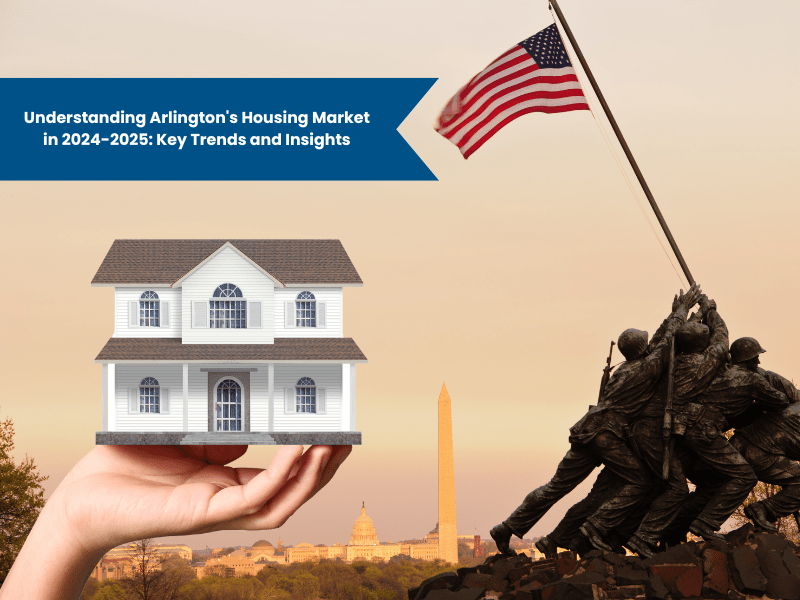Arlington continues to be one of the most sought-after places to live in Northern Virginia, largely due to its unbeatable proximity to Washington, D.C., and its robust infrastructure. However, living in Arlington also comes with realities that reflect the area’s evolution over time. Homes in Arlington are often older, and the densely packed neighborhoods feature a mix of housing types, from classic single-family homes to modern high-rises. Recent changes to single-family zoning laws have introduced new housing opportunities but have also sparked debates among long-time residents about preserving Arlington's traditional character.
The area is known for its bustling streets, heavy traffic, and a dynamic, international culture that enriches the community. Yet, the charm that once defined Arlington has shifted in the face of rapid development and "progress." While the area still offers an array of amenities, vibrant neighborhoods, and strong community ties, the growth and modernization have transformed its feel. For some, these changes signal exciting opportunities, while others view them as a departure from Arlington’s original appeal. Balancing the old with the new is part of the evolving story of Arlington today. For anyone considering buying a home in Arlington, understanding the evolving market dynamics is essential.
Understanding Arlington's Housing Market in 2024-2025: Key Trends and Insights

Arlington, Virginia, remains a dynamic and competitive real estate market, with a mix of opportunities and challenges defining its landscape in 2024-2025. The overall property tax base has increased modestly by 2.5%, supported by a 3.2% rise in residential property values and a 1.6% gain in commercial property values. This growth reflects new residential and mixed-use developments, particularly in areas like Crystal City, though challenges persist in the commercial sector with office property values declining by 11% due to high vacancy rates and shifting workplace demands. Despite this, apartment and hospitality sectors have shown significant recovery, reflecting a post-pandemic rebound.
Factors Driving Housing Prices
The average single-family home value in Arlington, Virginia, increased from $798,500 to $824,700 between 2023 and 2024, according to county assessments. However, more recent data from October 2024 indicates a median sale price of $685,000, reflecting a 6.2% decrease compared to the previous year. This suggests that while assessed values showed an increase, actual sale prices have experienced a decline, highlighting the importance of consulting the latest market data for accurate property valuations.
Costs of Buying a Home in Arlington
Arlington's real estate landscape is marked by variations in property values based on home types and neighborhoods. Residential properties, including condominiums, townhouses, and single-family homes, have experienced diverse valuation changes. Approximately 70% of residential property owners saw an increase in assessed values, while others remained stable or saw slight declines. This mixed trend underscores the need for buyers to carefully evaluate specific areas and housing types.
Average Home Prices: The average single-family home value is $824,700, while condominiums and townhouses offer more affordable entry points for buyers, depending on location and amenities.
Neighborhood Dynamics: Areas like North Arlington continue to command premium prices due to their proximity to D.C. and top-rated schools, while South Arlington offers more affordability and rapid growth in mixed-use developments.
Projected Trends and Considerations for Buyers
The Arlington housing market is expected to see continued growth in residential property values, driven by strong demand, zoning adjustments, and strategic development projects. However, affordability challenges persist as rising mortgage rates and limited inventory impact buyer purchasing power. Buyers should act strategically, leveraging local market insights to identify opportunities in emerging neighborhoods and new developments.
Arlington's evolving housing market offers both opportunities and complexities for buyers and investors. With its mix of established charm, modern growth, and ongoing affordability challenges, understanding the local dynamics is crucial. Whether you’re drawn to the vibrant urban areas or quieter suburban pockets, Arlington's diverse real estate market requires careful navigation to make informed decisions.
Updated Strategies for Navigating Arlington's 2025 Housing Market

Navigating Arlington’s housing market in 2025 requires a strategic approach as the region continues to adapt to changing market conditions and policy shifts. With rising property assessments, a new adaptive reuse policy aimed at revitalizing commercial spaces, and evolving zoning laws, prospective buyers and investors must stay informed to make the most of opportunities in this dynamic market.
Key Market Dynamics
Arlington’s housing market is shaped by a mix of residential growth and challenges in the commercial real estate sector. The County's 2025 real estate assessments project a 2.5% growth in residential property values, reflecting the continued demand for housing in this highly desirable area. However, commercial properties face headwinds with elevated office vacancy rates, prompting the County to adopt an innovative adaptive reuse policy to convert outdated office spaces into mixed-use developments. This policy could spur growth in underperforming areas, potentially increasing property values over time.
Impact of Real Estate Tax Increases
The proposed FY 2025 budget includes a 1.5-cent real estate tax rate increase per $100 of assessed value. While this tax hike aims to fund critical community priorities, such as affordable housing, mental health services, and environmental initiatives, it adds to the financial considerations for both homeowners and potential buyers. Prospective buyers should factor these tax changes into their long-term budgeting, especially as the County seeks to balance growing service demands with equity-focused policies.
Changes in Zoning and Housing Supply
Arlington’s controversial “missing middle” policy, designed to allow higher-density housing in previously single-family zones, was struck down by a circuit court in late 2024. While this decision maintains higher property values in established single-family neighborhoods, it reflects concerns from homeowners who argued that rezoning would inappropriately alter the character of these areas with limited impact on overall housing supply. This ruling preserves the appeal and exclusivity of single-family neighborhoods, making these properties even more desirable in Arlington’s competitive 2025 market. However, prospective buyers should anticipate continued inventory constraints in these highly sought-after areas, reinforcing the importance of strategic planning and expert guidance when navigating this dynamic market.
Tips for Buyers in 2025
Leverage Adaptive Reuse Opportunities: The adaptive reuse initiative could lead to new residential and mixed-use developments in previously commercial areas. Buyers looking for modern living spaces or investment opportunities should monitor these emerging projects closely.
Plan for Tax and Fee Adjustments: The tax rate increase and new stormwater utility fee could impact affordability. Buyers should work with financial advisors or real estate experts to understand the full cost of homeownership in Arlington.
Evaluate Market Segments: While single-family homes remain in high demand, townhouses and condos offer more affordable alternatives in the competitive Arlington market. Keep an eye on trends in these segments for better opportunities.
Stay Informed on Local Policy Changes: Zoning and housing policies are subject to ongoing legal and political developments. Engaging with local real estate professionals ensures that you’re equipped with the latest insights to make informed decisions.
Key Changes to Real Estate Commission Rules in 2024
In 2024, significant changes to real estate commission rules have reshaped how buyers, sellers, and agents approach transactions in Northern Virginia. Transparency is now a priority, with regulations requiring upfront disclosures of commission structures, ensuring clients understand costs and agent roles. A notable shift is the decoupling of buyer agent commissions from seller obligations, placing more responsibility on buyers to negotiate their agent’s fees. These changes promote fairness and flexibility but may require clients to adapt to new fee structures. Arlington Abodes is here to guide you through these updates, ensuring clarity and confidence in every transaction.
Opportunities for Investors
Arlington’s market continues to offer lucrative investment prospects, particularly with the ongoing redevelopment of commercial properties and steady demand for rental housing. The growth in the apartment and hotel sectors reflects the area’s recovery post-pandemic, making multi-family and hospitality-focused investments worthwhile considerations.
In 2025, navigating Arlington’s housing market requires adaptability and a clear understanding of local dynamics. By staying informed and working with experienced real estate professionals, buyers and investors can make confident, strategic decisions in this evolving market.
For more information about Property Management and Real Estate Services, please feel free to contact us at Arlington Abodes Realty & Property Management. Also, follow me on Facebook for tips and news. Also consider our other resources such as: "Will Arlington County Property Owners Pay More Taxes in 2025," and "Missing Middle Arlington: Key Zoning Laws Every Property Owner Should Know."





